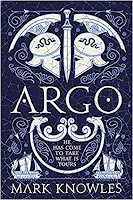I received this book for free from Netgalley. That did not influence this review.
Harper St. George’s latest historical romance is The Lady Tempts an Heir. Set in the Gilded Age, this series of novels deal with the new money Americans coming to England to buy titles for themselves (and their social climbing families.) I thoroughly enjoyed the first novel in the series, The Heiress Gets a Duke. I missed the second book but will have to come back to it. In those novels, the exceedingly wealthy Crenshaw sisters are married off to aristocrats after difficult courtships, finding love despite the initially mercenary arrangements.
This third book is interesting because it is the wealthy American son who is being coerced into marriage by his parents, particularly by his tyrannical tycoon father. Maxwell Crenshaw is also a fiercely ambitious businessman, poised to eventually take over the family business. However, he has a heart, and has already come to London twice to support his sisters when they are being forced to marry against their wills. Now he has returned because his father has had a heart attack. By the time he arrives, the father is recovering. But the father is more determined than ever to get Maxwell wed and breeding to ensure the continuation of the family line – to secure the Crenshaw Ironworks legacy. Maxwell would rather take his time and marry for love.
Lady Helena March is a young widow who has thrown herself into charitable works, most notably a home (with daycare) for unwed mothers and their children. She is a good friend of the Crenshaw sisters and had previously met Maxwell and been attracted to him. But now her father is pressuring her to wed again, to find a man to lend her some respectability, especially if she’s going to insist on associating with such undesirable elements. He is not above throwing his influence around to thwart her charity, sure that he is protecting her by doing so.
The older generation of men in these novels is really despicable. But the younger men are more forward thinking and make admirable heroes.
In order to get around the manipulations of both the fathers, Maxwell and Helena embark upon a pretend engagement, planning to cry off once their individual projects have enough momentum that the fathers can’t stop them. Of course, romance readers know how these “pretend engagement” scenarios work out.
There is a lot of steam between Maxwell and Helena, but a lot of mutual support and admiration as well. This is a fun romance series that’s just a bit outside of the usual Regency Romance setting. This novel can stand alone. And the series can be read out of order, because that’s what I’m going to have to do!






















